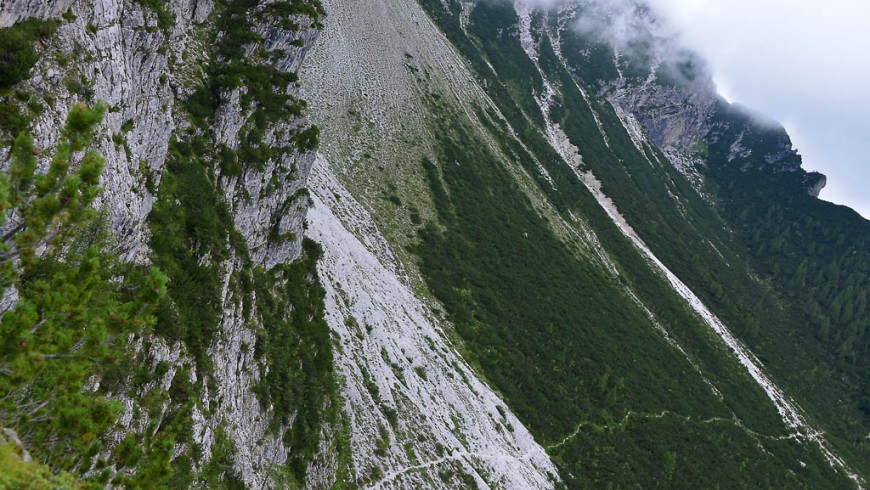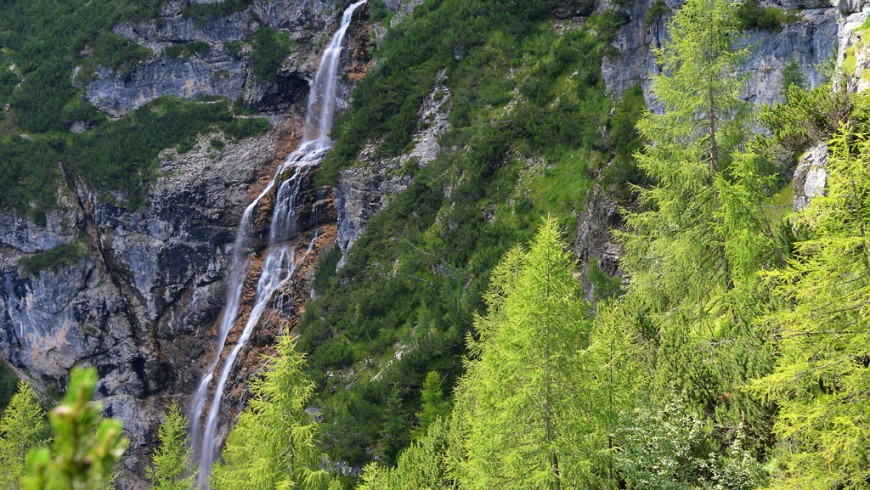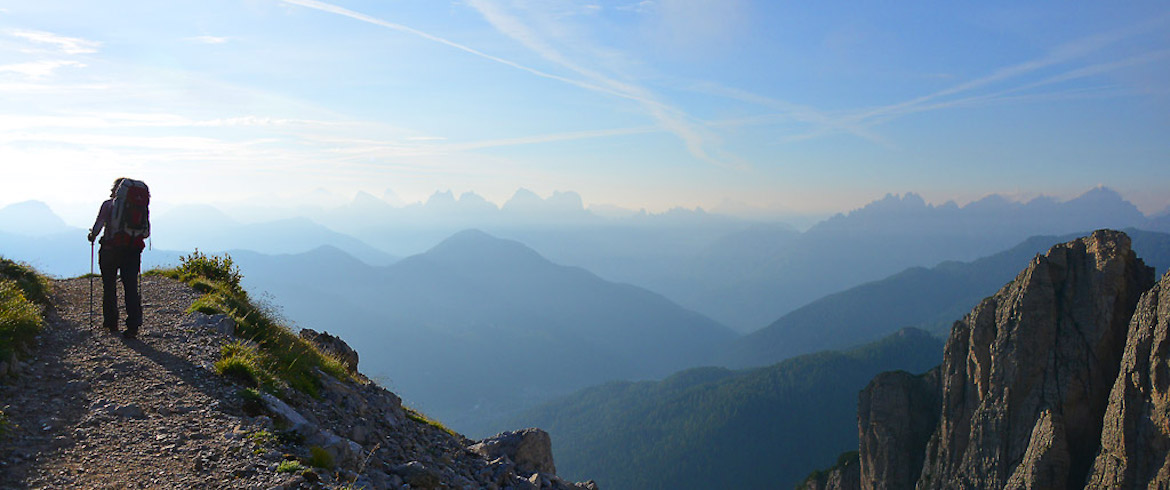The wonderful wayfaring poets trek awaits us in Val di Zoldo, before the Belluno Dolomites, touching in seven days all the major massifs between daring forks and placid green valleys.
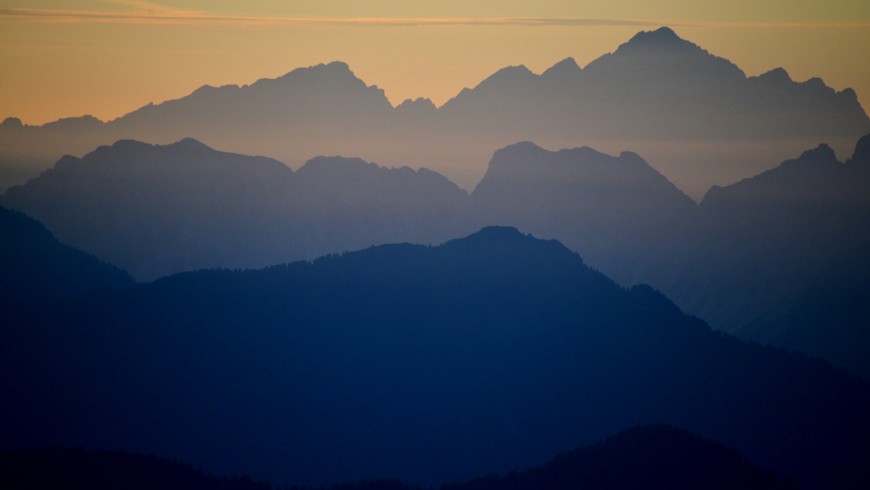
Walking associates with our thoughts, as the ancients, from the Greek philosophers to the Japanese poets, well knew when they composed their best works walking. Taking a trek of several days on the Italian mountains can become an excuse for letting your mind wander freely, savoring the time of walking slow and steady.
The Val di Zoldo is well suited to these meditations. Rough and wild, it is located away from the crowded most popular hiking trails of the Dolomites and for this offers wide natural spaces to feel at one especially with yourself.
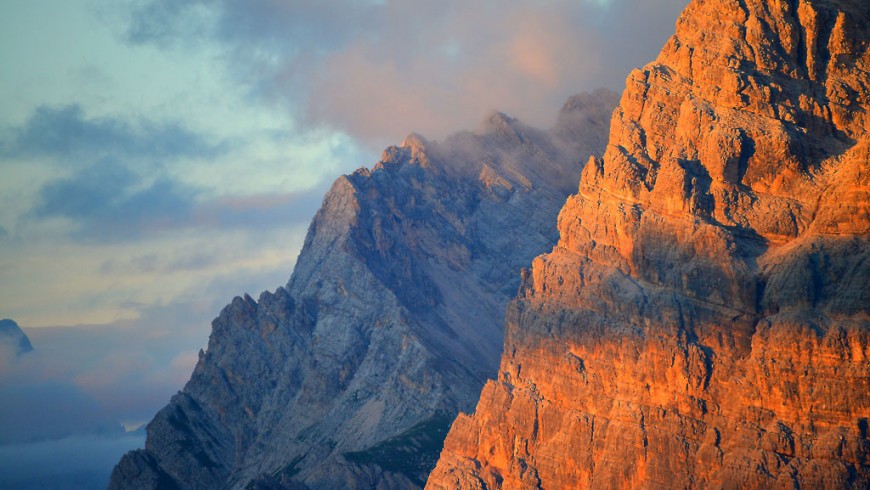
Twenty kilometers north of Belluno, and 20 kilometers south of Pieve di Cadore, there’s Longarone, dominated by a dam. From Longarone we go up the narrow valley that after just ten kilometers opens in the first charming village of Forno di Zoldo, and then continue up to Zoldo Alto.
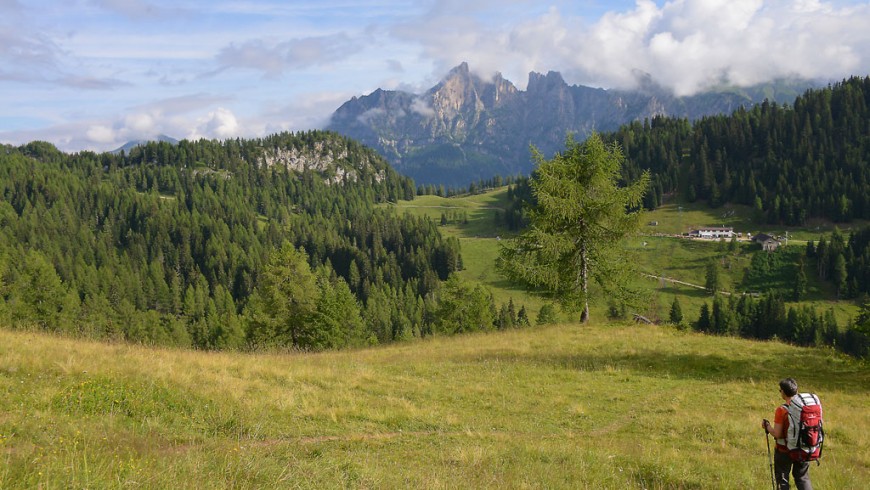
Along this valley wrongly less known we can admire the Bosconero group behind us, the Spiz di Mezzodì group to the left, and the group that includes Tamer and San Sebastiano, and the magnificent group of Moiazza and Civetta that stands proudly in front of us. Isolated, on the right, the majestic “caregòn de ‘l Padreterno” (God’s throne) rises: it’s the Pelmo, a magnificent 3,168 meters high rock mountain, that was the first peak in the Dolomites to be climbed (in 1857 by Irishman John Ball) and on whose slopes there’s the first Italian Dolomites refuge.
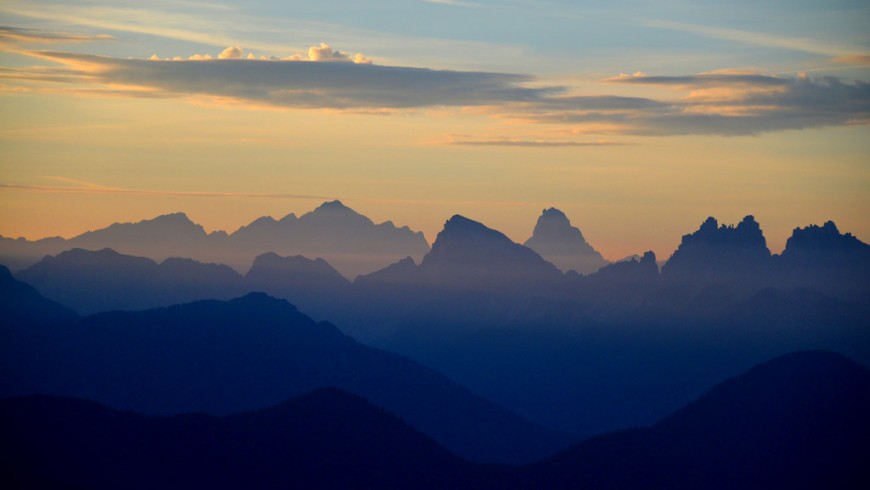
Before us, clear stones that represent the spirit of the Dolomites: soft meadows, with shady forests and steep sunny forks, and a breathtaking 360° view, like the one on Mount Rite, at 2,183 meters altitude.
The wayfaring poets trek runs along the bases of all these mountain ranges, making a circular tour lasting an average of seven days following the Circular Trail of Zoldo Dolomites. It is recommended for experienced hikers as it has some very technical sections, steep and exposed, and because it’s necessary to carry on their shoulders a multi-day backpack.
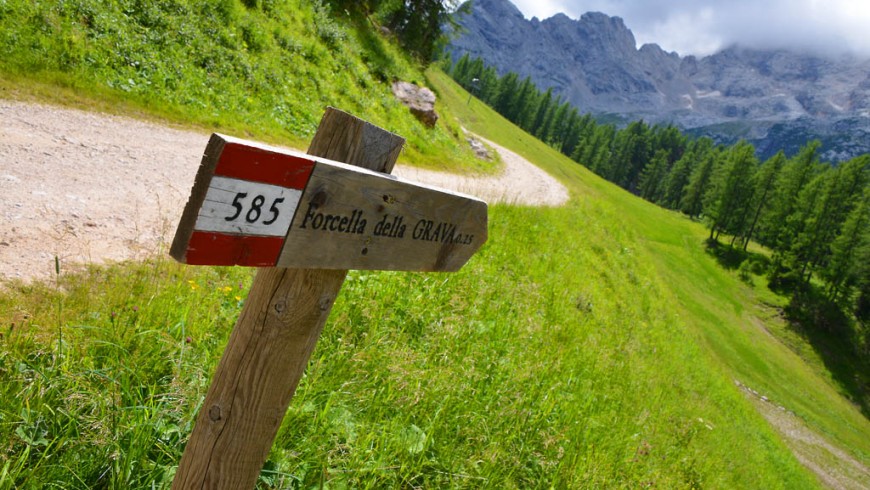
The trek starts from Forno di Zoldo and, climbing along the slopes of the Spiz group, reach the refuge Sora’l Sass-Giovanni Angelini (1,588 m.). It continues down to the bucolic valley Prampèr up to Col de Michiel, thus bypassing the slopes of the San Sebastiano group, touches the scenic bivouac V. Angelini (1680 m.) and reaches the Passo Duran (1605 m.).
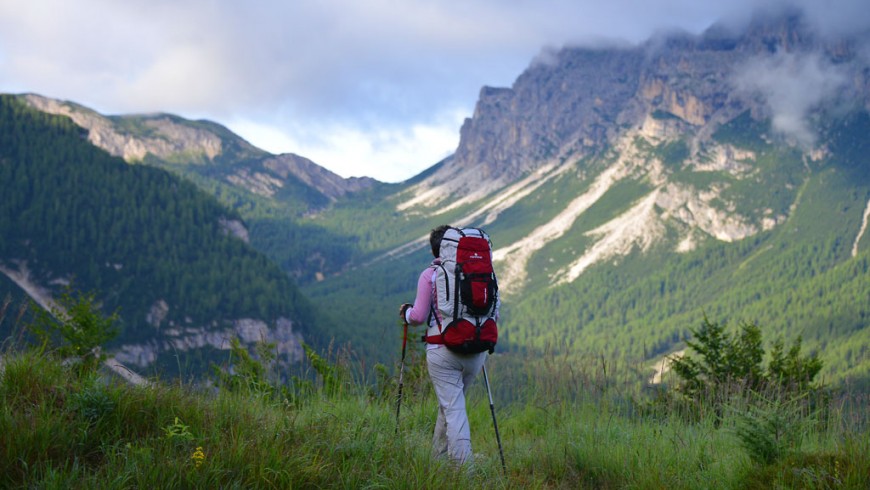
A small digression leads us to the superb mountain refuge “Brutus Carestiato”, at the base of the impressive Moiazza group.
From Passo Duràn we continue towards the base of Moiazza-Civetta. Experts can follow the route of the “Angelini Path”, but there’s also the simpler route, with great landscapes, that runs through the Val de la Grava to get down comfortably in Forno Alto, the largest town in the valley. From here we climb through forests, plains and rocks to the refuge A. Sonino to Coldai (2,132 m.), at the foot of Mount Civetta.
Now the most bucolic and relaxing stretch of the trek begins, down through meadows and pastures to Passo Staulanza and then along the southern base of Mount Pelmo, through the dinosaur footprints arrvingat its eastern foot, where stands the refuge Venezia- de Luca (1,946 m.).
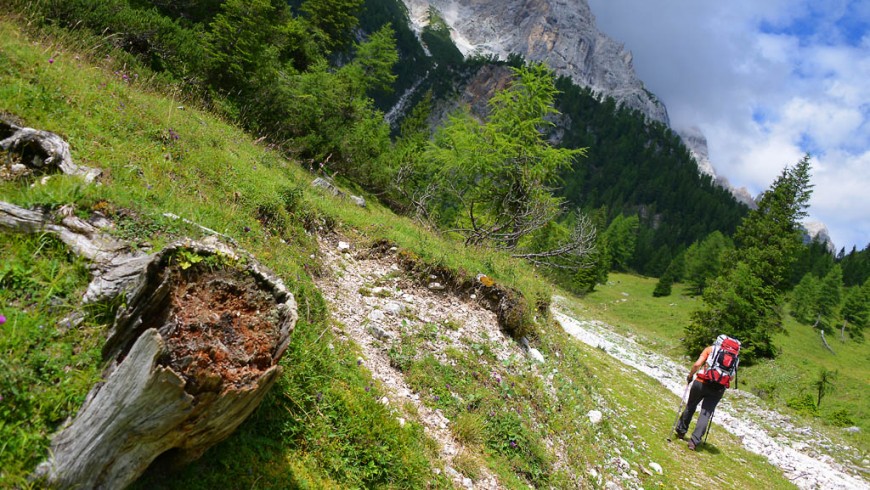
The next stage initially leads us to the refuge Talamini (1,582 m.) and then climbs up towards the spectacular Mount Rite (2183 m.) that houses the refuge Dolomites and the Messner Mountain Museum Dolomites called “the museum in the clouds” for the extraordinary view 360° that offers.
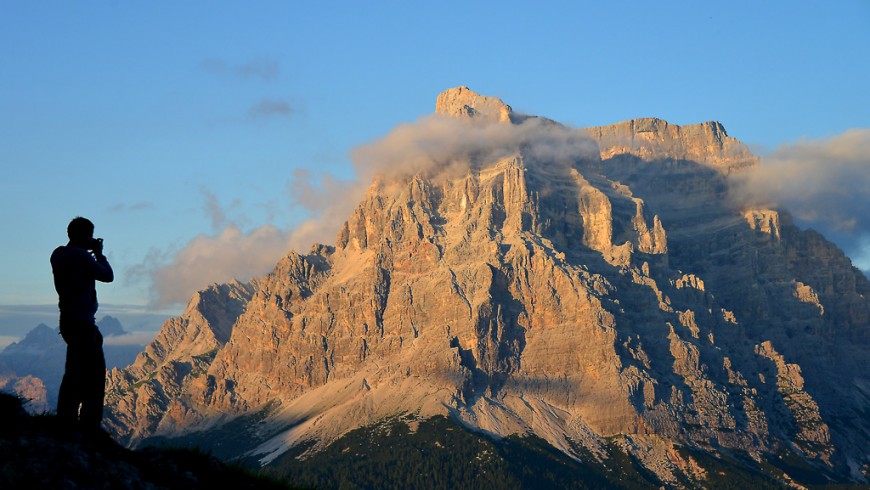
Through downhill we reach Passo Cibiana and the refuge Remauro (1,530 m.) and then we climb gradually to Sforniòi. From the saddle of Calada a steep and demanding descent leads to the Bosconero.
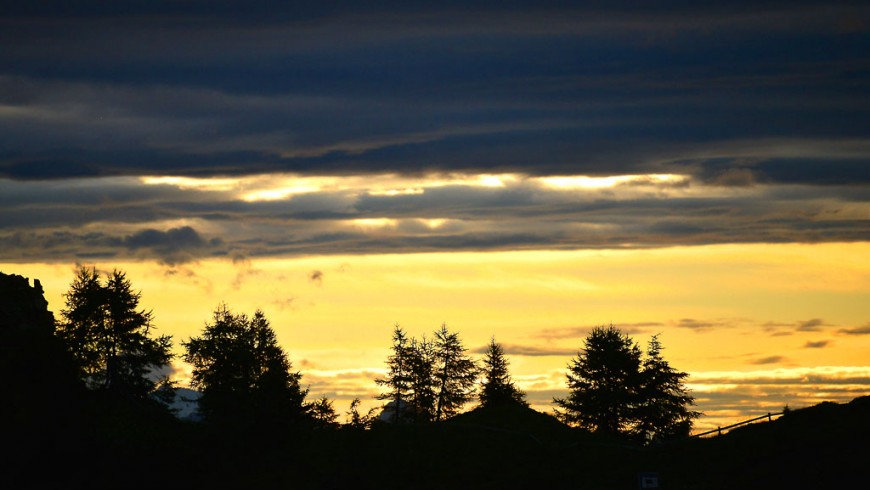
The last stage, very easy, leads down into the valley, reaching the starting point in Forno di Zoldo. If you wish, you can descend directly to Forno, saving a day of trekking, but do you really want to miss the magic of the sunset over Mount Civetta, while behind the refuge the walls Sasso di Bosconero turn red?
A real natural poetry.
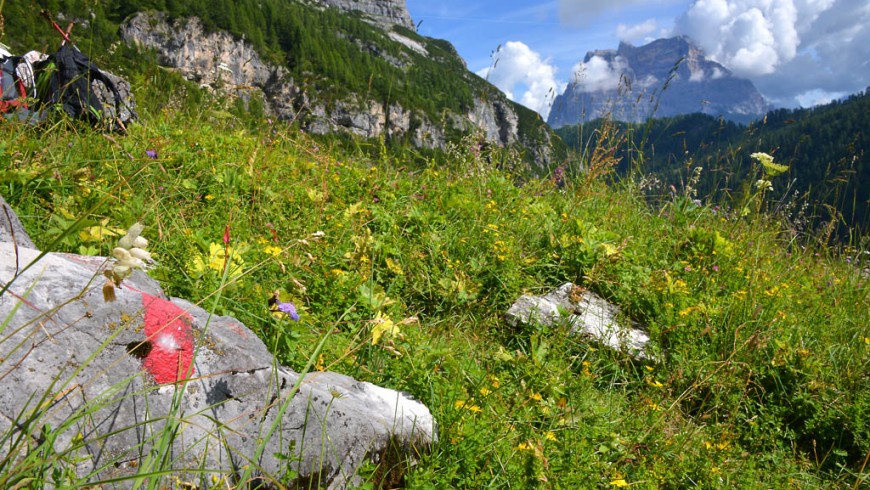
The wind ruffles the peaks /
blowing /
scent of resin.
(Haiku written during the journey)
